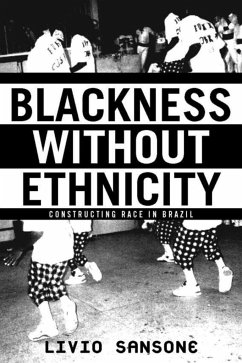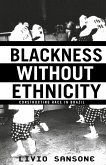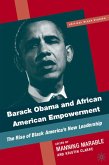Blackness Without Ethnicity draws on fifteen years of his research in Bahia, Rio Suriname, and Amsterdam. Sansone uses his findings to explore the very different ways that race and ethnicity are constructed in Brazil and the rest of Latin America. He compares these Latin American conceptions of race to dominate notions of race that are defined by a black-white polarity and clearly identifiable ethnicities, formulations he sees as highly influenced by the US and to a lesser degree Western Europe. Sansone argues that understanding more complex and ambiguous notions of culture and identity will expand the international discourse on race and move it away from American dominated notions that are not adequate to describe racial difference in other countries (and also in the countries where the notions originated). He also explores the effects of globalization on constructions of race.
Hinweis: Dieser Artikel kann nur an eine deutsche Lieferadresse ausgeliefert werden.
Hinweis: Dieser Artikel kann nur an eine deutsche Lieferadresse ausgeliefert werden.
'Streets ahead of what is currently being published in the field.' - Paul Gilroy, Yale University
'Ground-breaking work' - Ed Telles, UCLA
Sansone's book offers a fresh, unique, insightful, and highly controversial perspective... Taken together, the essays make a stron. case against the analytical ethno-centrism that characterizes much comparative work on race in Brazil. - Mara Loveman, American Journal of Sociology
'Ground-breaking work' - Ed Telles, UCLA
Sansone's book offers a fresh, unique, insightful, and highly controversial perspective... Taken together, the essays make a stron. case against the analytical ethno-centrism that characterizes much comparative work on race in Brazil. - Mara Loveman, American Journal of Sociology








